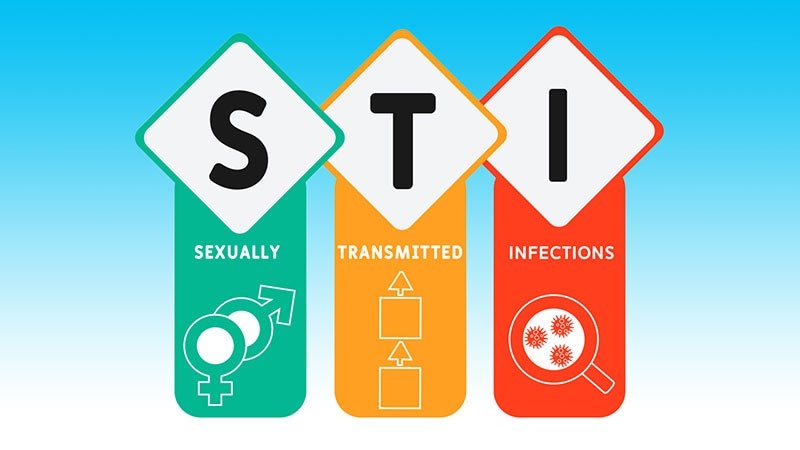
Sexually transmitted infections (STIs)
Sexually Transmitted Infections (STIs) are a growing concern in Nagpur, just as in other parts of India. These infections, caused by bacteria, viruses, or parasites, spread primarily through sexual contact. With increasing awareness and advancements in healthcare, residents of Nagpur can now access reliable diagnosis, treatment, and prevention methods to combat STIs effectively.
STIs, also referred to as sexually transmitted diseases (STDs), can affect people of all ages and backgrounds. While some STIs may show immediate symptoms, others remain asymptomatic for an extended period, making regular testing crucial for early detection and treatment.
Common Types of STIs in Nagpur
- Chlamydia – A bacterial infection that often presents no symptoms but can cause infertility if left untreated.
- Gonorrhea – Another bacterial STI that affects the reproductive tract and can lead to serious complications.
- Syphilis – A multi-stage infection that begins with painless sores and can progress to severe organ damage.
- HIV/AIDS – A life-threatening viral infection that weakens the immune system, making individuals prone to opportunistic infections.
- Human Papillomavirus (HPV) – A common viral STI responsible for genital warts and cervical cancer.
- Herpes Simplex Virus (HSV) – Causes painful sores and blisters, with outbreaks occurring intermittently.
- Trichomoniasis – A parasitic infection that leads to itching, discomfort, and unusual discharge.
- Hepatitis B & C – These viral infections can be transmitted sexually and primarily affect the liver.
Symptoms of STIs
- Unusual discharge from the genitals
- Painful urination
- Genital sores, blisters, or warts
- Pelvic pain
- Swelling in the groin area
- Flu-like symptoms (fever, body aches, fatigue)
- Itching and burning sensation in the genital area
Risk Factors Associated with STIs
- Unprotected sexual intercourse
- Multiple sexual partners
- Having a history of STIs
- Sharing needles or syringes
- Engaging in sexual activity under the influence of alcohol or drugs
- Lack of vaccination (e.g., for HPV and Hepatitis B)
Prevention of STIs
1. Safe Sex Practice
The use of condoms and dental dams regularly and properly lowers the risk of STI transmission. Barrier methods form a protective barrier, which stops direct skin-to-skin and fluid contact.
2. Vaccination
There are vaccines for some STIs, including HPV and Hepatitis B. These vaccines greatly reduce the risk of contracting these infections and their complications.
3. Routine Testing and Screening
Regular STI screening is advised, particularly for sexually active adults. Early diagnosis guarantees timely treatment, halting further transmission and complications.
4. Restricting Sexual Partners
Being in a mutually monogamous relationship with a partner who is not infected lessens exposure to STIs.
5. Open Communication with Partners
Open communication regarding sexual health, STI screening, and safe sex encourages responsible behavior and minimizes risks.
6. Refraining from Substance Abuse
Open communication regarding sexual health, STI screening, and safe sex encourages responsible behavior and minimizes risks.
Treatment Options Available in Nagpur
- Bacterial STIs (Chlamydia, Gonorrhea, Syphilis): These are curable with antibiotics. It is important to finish the medication prescribed to prevent recurrence.
- Viral STIs (HIV, HPV, Herpes, Hepatitis B & C): Antiviral drugs control symptoms and halt progression. Although some viral STIs are not curable, their effects can be reduced with appropriate medical treatment.
- Parasitic STIs (Trichomoniasis): Antiparasitic drugs successfully eliminate the infection.
The Role of Awareness Campaigns in Nagpur
Several organizations and healthcare institutions in Nagpur conduct STI awareness programs. These campaigns focus on educating people about safe sex, encouraging regular testing, and dispelling myths surrounding STIs. Government initiatives, NGOs, and educational institutions actively participate in STI prevention programs, ensuring that accurate information reaches the masses.
Overcoming the Stigma Around STIs
One of the biggest challenges in STI prevention and treatment is the stigma associated with these infections. Many individuals avoid testing and treatment due to fear of judgment. However, raising awareness, promoting open discussions, and encouraging healthcare-seeking behavior can help break these barriers.Contact Us
Conclusion
Sexually Transmitted Infections (STIs) are a serious health concern in Nagpur. However, with increased awareness, accessible healthcare services, and proactive prevention measures, individuals can protect themselves and their partners from these infections. Practicing safe sex, getting vaccinated, undergoing regular screenings, and seeking timely medical help are crucial steps in maintaining sexual health.Schedule your Consultation with Dr. Ritesh Nawkhare
